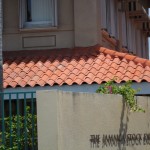Обновили на порносайте
pornobolt.tv порно страничку о том как парень выебал пизду мачехи, которая устала от своего муженька
Комиксы, Манга читать онлайн на Русском языке Education plays a pivotal role in shaping individuals and communities. Accessing diverse learning resources is essential for personal growth and societal progress. Discover educational avenues at Sorescol, Fiftylicious, and Maniamall to begin your educational journey.
Ei jälkiä pölystä: muista tämän puhdistusliuoksen koostumus - Rauman Varaosahalli
Mitkä kukat puutarhurit istuttavat taimille helmikuussa: 3 suosittua lajia - Rauman Varaosahalli
Älä kiirehdi vaihtamaan älypuhelimen akkua: 6 tapaa säästää latausta - Rauman Varaosahalli
Miksi kokeneet emännät eivät heitä pois munakartonkipakkauksia: 6 tarpeellista käyttötarkoitusta - Rauman Varaosahalli
Hernemato ei enää koskaan ilmesty - agronomi on ehdottanut kahta yksinkertaista toimenpidettä - Rauman Varaosahalli
Valurautaiset paistinpannut pysyvät vapaina rasvasta ja noesta: kokeile tätä välttämätöntä ratkaisua - Rauman Varaosahalli
Älä heitä niitä pois: lääkäri selitti, miksi kirsikan lehdet ovat arvokkaampia kuin itse marjat - Rauman Varaosahalli
Älä heitä tölkkejä pois: 12 tapaa käyttää niitä kotona ja maaseudulla - Rauman Varaosahalli
Älä heitä sipulin kuoria pois: sitä varten tämä 'roska' on ennen uutta vuotta - Rauman Varaosahalli
Kuoren maku yllättää sinut: muista tämä paistettujen perunoiden resepti - Rauman Varaosahalli
Älä heitä vanhaa mattoasi pois: 9 ideaa sen käyttämiseen kotona ja maaseudulla - Rauman Varaosahalli
Ikkunalaudastasi tulee kukkivien orkideoiden tuoksuinen: lehtikirja kauniiden kukkien kasvattamiseen - Rauman Varaosahalli
Älä heitä paperipyyhkeiden hylsyjä pois: 9 tapaa käyttää niitä kotona ja keittiössä - Rauman Varaosahalli
Sekoita ruokasooda ja Fairy: et usko, mitä tämä seos voi tehdä - Rauman Varaosahalli
Älä heitä vanhoja muovipusseja pois: 5 tapaa käyttää niitä kotona ja kodissa - Rauman Varaosahalli
Terveysministeriö kertoi, mitä viruksia Valko-Venäjällä tällä hetkellä liikkuu - Rauman Varaosahalli
Älä heitä sipulin kuoria pois: tulet hämmästymään, miten fiksut puutarhurit käyttävät niitä - Rauman Varaosahalli
Mistä tunnistaa kypsän appelsiinin: muutama lehtitieto kypsien ja maukkaiden hedelmien valintaan - Rauman Varaosahalli
Miksi vetyperoksidia lisätään lattioita puhdistettaessa: kokeneiden kotiäitien menetelmä - Rauman Varaosahalli
Älä heitä paperipyyhkeiden hylsyjä pois: 7 tapaa käyttää niitä kotona ja keittiössä - Rauman Varaosahalli
Älä kiirehdi hankkiutumaan eroon vanhasta matosta: 8 hyödyllistä tapaa käyttää sitä kotona ja maaseudulla - Rauman Varaosahalli
Monet kotiäidit kaatavat väärin kiehuvaa vettä lavuaariin: tässä on, mikä voi vahingoittua - Rauman Varaosahalli
Miksi esi-isämme kantoivat mukanaan laakerinlehteä: muutama niksi isoäideiltämme - Rauman Varaosahalli
Miten saat takaisin pehmeyden vuodevaatteisiisi: 8 vinkkiä fiksuilta ja säästäväisiltä emänniltä - Rauman Varaosahalli
Nokkela muurahaisloukku: tämä on ainoa tapa pelastaa hedelmäpuut tuholaisilta - Rauman Varaosahalli
Do ziemniaków i pierogów: zrób najsmaczniejszy sos grzybowy na Boże Narodzenie - Bludenz
Jeśli przegapiłeś ten smak: jak zrobić chrupiącą sałatkę z zielonej cebuli - Bludenz
Marynowane grzyby w kilka godzin - na stół lub dla odmiany - Bludenz
Zbiory będą zadowolone z obfitości: dodaj kaszę gryczaną do gleby w kwietniu - Bludenz
Sałatka ze szczotką: zwięzły przepis, który pasuje absolutnie do wszystkiego - Bludenz
Nie wyrzucaj klipsów do torebek na chleb: pamiętaj o 9 przydatnych sposobach ich wykorzystania - Bludenz
Wlać bezpośrednio do garnka - mętny bulion stanie się klarowny w ciągu kilku sekund - Bludenz
Idealny przepis dla tych, którzy się spieszą: szybki gulasz z kurczakiem w chińskim stylu - Bludenz
Danie z dawnych czasów: wieloletni przepis na kolache od 'MasterChefa' Vladimira Yaroslavsky'ego - Bludenz
Goście będą oblizywać palce: kanapki z awokado - sekret tkwi w specjalnym sosie - Bludenz
Delikatny, kwaśny i obłędnie pyszny: najlepszy sos do klopsików - goście połkną go językami - Bludenz
Nie wyrzucaj kiełków starych ziemniaków: zręczne gospodynie domowe znalazły dla nich przydatne zastosowania - Bludenz
Królewski luksus na Twoim stole: sekret najbardziej soczystej ryby w piekarniku - Bludenz
Jak jeszcze sprytne hostessy używają folii aluminiowej: 4 niezbędne sytuacje domowe - Bludenz
Oto funkcje, o których istnieniu nawet nie wiedziałeś: nie uwierzysz, co potrafi Twoja kuchenka mikrofalowa - Bludenz
Przepis na magiczny sok dyniowy prosto z Hogwartu: poczuj się jak Harry Potter - Bludenz
Uwaga: Rosjanom powiedziano, jak wybrać gotowe mięso na kebab - Bludenz
Nie wrócisz do innych przepisów - przygotuj ziemniaki w mundurkach metodą Iny Garten - Bludenz
Twarożek czekoladowy i ciasto wiśniowe: palce lizać - Bludenz
Sprzedawane w każdym Magnit: Roskachestvo znalazł najlepsze naleśniki z mięsem - Bludenz
Jedz chipsy w ten sposób: nie szkodzą, tylko bawią - Bludenz
Okulary będą lśnić czystością: pamiętaj o składnikach tego domowego środka czyszczącego - Bludenz
Co najczęściej psuje pralkę: zapamiętaj 5 najczęstszych błędów - Bludenz
Zalej twaróg wrzątkiem: jeśli tak się stanie, wyrzuć go do kosza - Bludenz
Trzy dania, które pokochasz: co zrobić z wczorajszego makaronu? - Bludenz
Kotlety będą soczyste i rozpłyną się w ustach: wystarczy dodać ten produkt do mięsa mielonego - Bludenz
Zostaw łyżkę w worku z mąką - korzyści będą niesamowite: zapomniana sztuczka naszych babć - Bludenz
Pożółkły plastik znów będzie lśnił bielą: wypróbuj ten roztwór czyszczący z mydłem - Bludenz
Nieopisanie świeża i lekka: przepis na pyszną wiosenną sałatkę - Bludenz
Bez piekarnika, bez mąki - pizza na stole w 10 minut - Bludenz
Pasztet z piekarnika w pięć minut, który podbił internet - Bludenz
Najszybszy przepis na delikatne naleśniki - gotują się w kuchence mikrofalowej w 45 sekund - Bludenz
Astrologická předpověď pro 30.04 pro všechna znamení zvěrokruhu - Bludenz
První a nejdůležitější krmení česnekem: 2 lžíce na záhon - velké a šťavnaté hlavy - Dumeto
Rajčata jsou sladká, masitá a téměř 5 kg na keř: zahrádkáři jsou z této nové odrůdy nadšeni - Dumeto
Odstraňte tyto části stromu: příští rok bude růst s bláznivou silou - Dumeto
Tyto 4 druhy zeleniny můžete bez obav sázet i v červenci: sklizeň bude zajištěna - Dumeto
Kde začít s výukou angličtiny: zkuste se naučit první slovíčka - Dumeto
Gladioly potěší bujnými květy - vysazujte je pouze podle těchto pravidel - Dumeto
Mají železné zdraví: 4 dlouhověká plemena koček, která se dožívají až 25 let - Dumeto
Zvyšte výnosy půdy bez kapky 'chemie': metody zkušených dachařů - Dumeto
Jak znovu použít hliníkovou fólii: sedm osvědčených způsobů pro domácnost - Dumeto
Po medvědovi nezůstane ani stopa: jak zachránit brambory před zákeřným škůdcem - geniální trik - Dumeto
Zbavte se plevele pouze v těchto dnech: účinek je okamžitý - Dumeto
Pračka přestane při odstřeďování skákat: 4 tipy pro odstranění vibrací - Dumeto
Vaše sazenice obsadili roztoči - žádný problém: lidový lék za pár drobných vaše sazenice zachrání - Dumeto
Nejmódnější manikúra podzimu-2023: stylová varianta v kávovém odstínu (foto) - Dumeto
Jak ještě šikovné hospodyňky používají mouku v domácnosti: 6 užitečných lifehacků pro domácnost a kuchyň - Dumeto
Rusové 'trik', jak ušetřit peníze na dovolené u moře - technika je velmi jednoduchá - Dumeto
Tento krásný siderát je 100krát lepší než hořčice: zvýší výnosy rajčat a zbaví je plevele - Dumeto
Půdní mušky si zapomenou cestu k sazenicím - prolijte je tímto přípravkem - Dumeto
Budete vypadat jako buran: stylista jmenuje hlavní chybu při výběru kabelky - Dumeto
Nevyhazujte staré plastové karty: 5 způsobů, jak je využít doma i v domácnosti - Dumeto
Venku je -30 °C a sněhová vánice, ale u vás doma je teplo: už žádný průvan z okna - 1 geniální způsob - Dumeto
Nevyhazujte svou starou bundu: 9 užitečných způsobů využití nepotřebného oblečení - Dumeto
Stejně dobré jako luxusní, ale za hubičku: 4 nejlepší levné rtěnky a lesky na rty - Dumeto
Nenechávejte špinavé nádobí přes noc venku: bojte se bakterií a negativní energie - Dumeto
4 věci, které ničí i dokonalé vztahy - Dumeto
Expertul în somn dezvăluie: Bea această poțiune magică și spune adio sforăitului pentru totdeauna - Chelsea Larabee
Fericitul câștigător a 100.000 de cărți de răzuit: 'Oamenii ar fi crezut că sunt nebun.' - Chelsea Larabee
V-ați săturat de calcar în baie? Află cele mai eficiente sfaturi ale experților pentru a scăpa de el - Chelsea Larabee
Kim Kardashian cu vești nebănuite - Chelsea Larabee
Economisiți bani la factura de încălzire: Iată 7 sfaturi eficiente - Chelsea Larabee
Un concurent de la 'Holder vi et år' dezvăluie: Nu vezi asta în program - Chelsea Larabee
O tânără de 22 de ani a postat o fotografie online: 37 de minute mai târziu, și-a dat seama de grozăvia jenantă - Chelsea Larabee
Toată lumea ar trebui să știe acest lucru despre caloriferul lor: Cum să evitați o factură prea mare - Chelsea Larabee
Expert: Trebuie să acționăm curând, altfel Ucraina este doar începutul - Chelsea Larabee
Nicole a încercat să oprească alarma de pe Apple Watch-ul iubitului ei: Apoi a făcut o descoperire care i-a zguduit lumea - Chelsea Larabee
Îl lasă în pantofi peste noapte - pantofii redevin ca și cum ar fi noi - Chelsea Larabee
Un medic avertizează asupra unei pandemii invizibile: Mă tem de ea mai mult decât de Corona - Chelsea Larabee
Coaforul danez oferă 3 motive probabile pentru care părul tău pare decolorat - Chelsea Larabee
Majoritatea oamenilor recunosc o broască la prima vedere: doar câțiva recunosc calul în mai puțin de 10 secunde - Chelsea Larabee
O mamă și-a lăsat fiul de 9 ani singur, fără acces la apă și căldură, timp de doi ani: Atât de lungă este pedeapsa - Chelsea Larabee
Își face un tatuaj cu un breton pentru a-și acoperi chelia, dar izbucnește în lacrimi din cauza rezultatului dezastruos - Chelsea Larabee
Economisiți mii de lire sterline în această iarnă cu ajutorul acestui mnemonic simplu - Chelsea Larabee
Un clip sălbatic devine viral: Transportă o întreagă colonie de albine pe braț - Chelsea Larabee
De aceea, mingile de tenis și bilele de staniol sunt de aur pentru rufele tale - Chelsea Larabee
Un bărbat aflat într-un Range Rover a intrat direct într-o mulțime de oameni pe o stradă pietonală din Germania - Chelsea Larabee
Experții avertizează: Nu ignorați niciodată aceste mirosuri - Chelsea Larabee
Donald Trump, cu o soluție drastică la o problemă care se agravează: Împușcați-i - Chelsea Larabee
Trucul cu staniol pe balcon: La ce se folosește? - Chelsea Larabee
Testul de vedere: Ai ochi de șoim dacă poți vedea ce ardei iute este desenat - Chelsea Larabee
O femeie deschide o conservă de fasole cumpărată din supermarket - și găsește un șarpe - Chelsea Larabee









